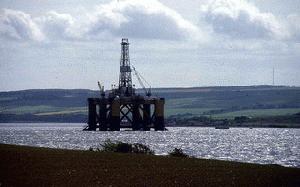An observation worth noting from Marco Pagani:
The IEA forecast for the future of petroleum [nearly 100 million barrels per day in 2035] is not only too optimistic, but also wrong because they are based on summing volumes of fuels which have different outputs and energy costs of extraction....
These predictions ... are totally wrong for two reasons:
Non-conventional fuels (liquefied natural gas, bitumen, shales, etc,) have a gross energy content per unit volume that is approximately 70% of conventional crude oil and, for this reason must be counted in terms of 'equivalent barrels....
We need to consider the 'net energy' that can be obtained from a given amount of fuel, because every fuel has an energy cost of production that must be subtracted from the total....
[I]f we make preparations for this future, perhaps we'll be able to face it, but if we keep the rosy colored glasses of IEA, we might well be running towards catastrophe. (links and footnotes in original quote)
Despite the diligent efforts of far too many others to keep the less-than-pleasant-and-defensible information from the public, reality will appear when it's time, regardless of the buzzwords and ideological assertions coughed up along the way.
The Happy Talkers like to assure the public that we have just zillions and zillions of barrels of oil just waiting out "there" for an intrepid company to yank it out of the ground (or beneath the sea) and supply it to us right quick. No fuss, no muss.
No truth.
Rate of production, time lines, degrees of difficulty, costs, investment concerns ... these and other vital factors which determine just how much of Earth's bounty we will actually have for our use rarely get mentioned by those content to toss out large numbers of "resources" or "reserves" as the beginning and end of energy supply conversations.
But as Mr. Pagani notes, what's being extracted these days is not exactly the same energy-rich supply of fossil fuel as mankind has enjoyed for nearly two centuries. We need more energy and funding to find and extract energy than ever before. What we're getting back isn't the same as what we've all depended on for all these years. To obtain the equivalent energy bang for the buck from unconventional and/or more difficult to get-at reserves, even more has to be produced to keep up with demand.
That means more expenses, more effort, more time, more difficulties, more of almost every facet of oil production. Investors aren't quite as delighted by these realities, and it's starting to show. Those added efforts carry a cost, and there's a price to us all as a result.
Planning for what to do when the math no longer works for us is a good idea, and now is as good a time as any".
Adapted from a blog post of mine






